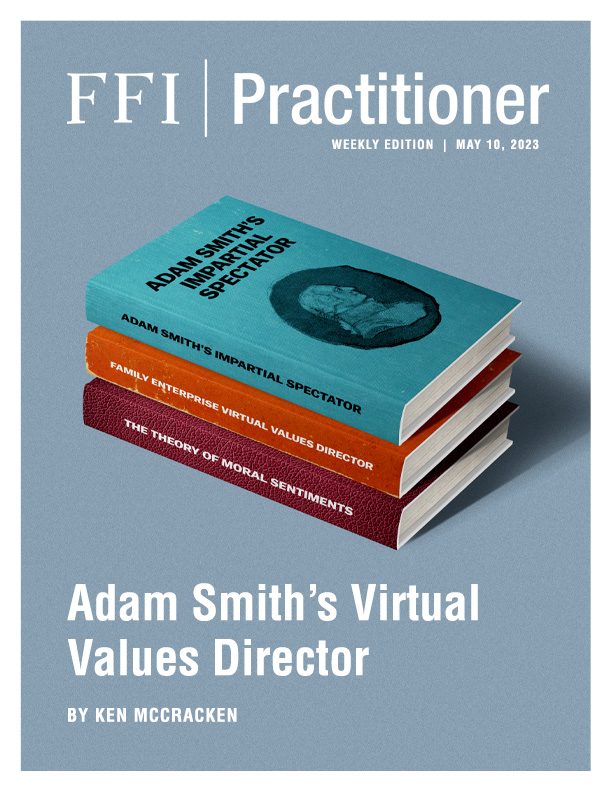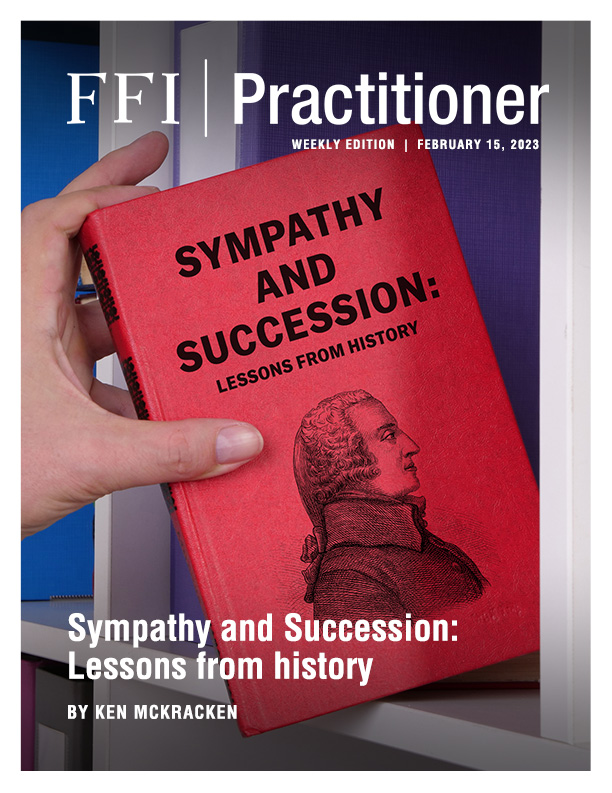
But what about suggesting to your clients that they consider appointing a Values Director with the following job description?
Sample Values Director Job Description
Our family business wants to recruit a Values Director as a senior full-time role. Based on a statement of values that expresses what the family business stands for, the Values Director will provide impartial feedback in sometimes difficult circumstances to help individuals work out what is expected of them versus what would lead to disapproval.
The Values Director will attend board meetings and participate in the annual performance reviews of key stakeholders, including the current owners and board of directors.
Additionally, the job description could specify attributes and characteristics that are well-suited for the role. This could include being vigilant, approachable, and available when needed; being a good listener who can coach people in the use of values; being able to relate to different roles in the business and different generations of the family; and being able to give candid feedback and act with uncompromising independence when that is necessary.
Not only is this role challenging, but it sounds like the Values Director would have to be an omnipresence who can constantly monitor behavior and be available whenever tricky decisions arise, which could be at any time in any day. This is unimaginable—unless the power of our imagination is applied to create a Virtual Values Director.
If this sounds like an innovative idea, it is time to confess that it is based on the idea of an Impartial Spectator that was introduced by Adam Smith, in The Theory of Moral Sentiments (1759). Smith explained that when struggling to decide a course of action, humans are endowed with an ability to stand back and imagine other choices. To help us we can create a role model, or Impartial Spectator, whose praise we will seek, whose disapproval we will try to avoid, and whose help is valuable whenever we are faced with difficult judgments.
Sidebar
by Ken McCracken
This week’s contributor, Ken McCracken, explores how some of Adam Smith’s most prominent thinking on self-interest and sympathy could be applied to succession planning discussions in family enterprises.
Smith argues that in imagining this Impartial Spectator, I start to adjust my behavior to achieve these standards. The Impartial Spectator reminds me of the morality of my intentions and actions and is committed to my self-improvement by helping me to see myself as I would like others to see me.
My Impartial Spectator, and yours, is not a universal source of morality against whom everyone can judge what is good or bad. Smith describes the Impartial Spectator as the man within our breast, an abstract and ideal spectator of our individual sentiments and conduct. I think that our imagination empowers us to create an almost tangible presence of any gender who can sit alongside us—including in the family business boardroom—and constantly provide feedback on our decision-making using the values and characteristics with which our Impartial Spectator, or Virtual Values Director, has been endowed.
The performance of a Virtual Values Director depends on the other stakeholders. If properly utilized, the Virtual Values Director will be able to help guide decision-making. If the Virtual Values Director attends every board, owners’, and family meeting, these stakeholders will be reminded it is necessary to justify decisions by the standards embodied in the Virtual Values Director.
On the other hand, if the Virtual Values Director is rarely consulted, the role will diminish along with the importance of values in the family business. Any criticism of the Virtual Values Director for lack of performance could reflect the failings of stakeholders to live up to and to use what they created.
Living with a constant awareness of values and trying to use them in decision-making is a dynamic experience. Every decision includes how to justify it to the Virtual Values Director who is always available to be consulted, whose praise is reward, and whose criticism is to be dreaded. This is a reminder that the process of reflecting on decisions and actions with the help of a Virtual Values Director is bound to be challenging, but like many things, excellence comes through practice and practice leads to success.





